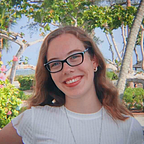Relg 102 Medium Post #7–10/21
While I would certainly say I have more prior knowledge about the BLM portion of this class than the content regarding Black Religion, my understanding of the content that will be in this documentary is still not as extensive as I would like. Growing up in Atlanta, I have definitely seen or heard stories about protests and police brutality, but my understanding about the origins of the movement is still fuzzy. I hope to learn more about where the movement came from and what its goals are.
I was surprised to see just how much social media contributed to the BLM movement and how it is that factor that really separates this movement from the Civil Rights Movement of the 1960s. Social media gave activists the ability to address a larger group of people at once than ever before and meant that everyone was able to stay in the loop, even if they were not all at the same protest or event. The social media movement also encouraged bystanders to film and upload videos of police brutality, making it challenging for perpetrators to go unidentified and easier to call out misconduct. Along with the subject of social media comes the evident divide between “old” and “young” leaders of this movement, and I was shocked when I watched young protesters verbally criticizing older civil rights activists. I had originally assumed they would all want to work together because they are all fighting for the same goal, but I realized that in the eyes of the younger activists, they held control of BLM and while they would not turn away older protestors, they were making a clear statement that they would not let these people come in late and get to “save the day.”
I found the clips from Fox News to be extremely frustrating. When the true goal of the movement appears to clear to me, it is hard to understand how anyone could read it so incorrectly. This news outlet attempted to destroy the reputation of the movement, making the protestors appear to be fighting in favor of “dead cops” and other forms of violence when in reality, violence is the very thing they are trying to put an end to. One tweet that the documentary included summed this up perfectly writing, “‘BLACK LIVES MATTER’ is not a hate group its simply a group of tired individuals who are fighting for equality and justice.” The documentary made it clear that BLM is not fighting in favor of violence, but they will also not be satisfied without “justice” and, in most cases, this means legal punishment of police officers who break the law. One interview clip asked the powerful rhetorical question, “Is it okay to break the law or not? Because the cops are breaking the law left and right… either [African Americans] have the same inalienable rights or [they] dont,” reminding viewers that actions speak louder than words and that holding officers legally responsible is arguably the only way for the government to prove that they stand with the members of the black community.
As I stated before, I am from Atlanta which saw a large amount of protest this summer, especially after the murder of Rayshard Brooks. While I was not allowed to participate in the protests due to health concerns in my immediate family regarding the pandemic, many of my close friends send me videos and images of the marches and I even had a few nights where the city was given a curfew and I was not allowed to leave my house after 8pm without the risk of getting into legal trouble. While watching this documentary, I caught myself scanning the clips for individuals in masks multiple times because the clips of the protests looked strikingly similar to the protests from just a few months ago, and I kept forgetting that this documentary was made before 2020. What this proves is that sufficent progress has still not been made, officers are still not being held accountable, and it is understandable that the black community continues to feel as if US law enforcement government officials do not believe their lives really do matter.
